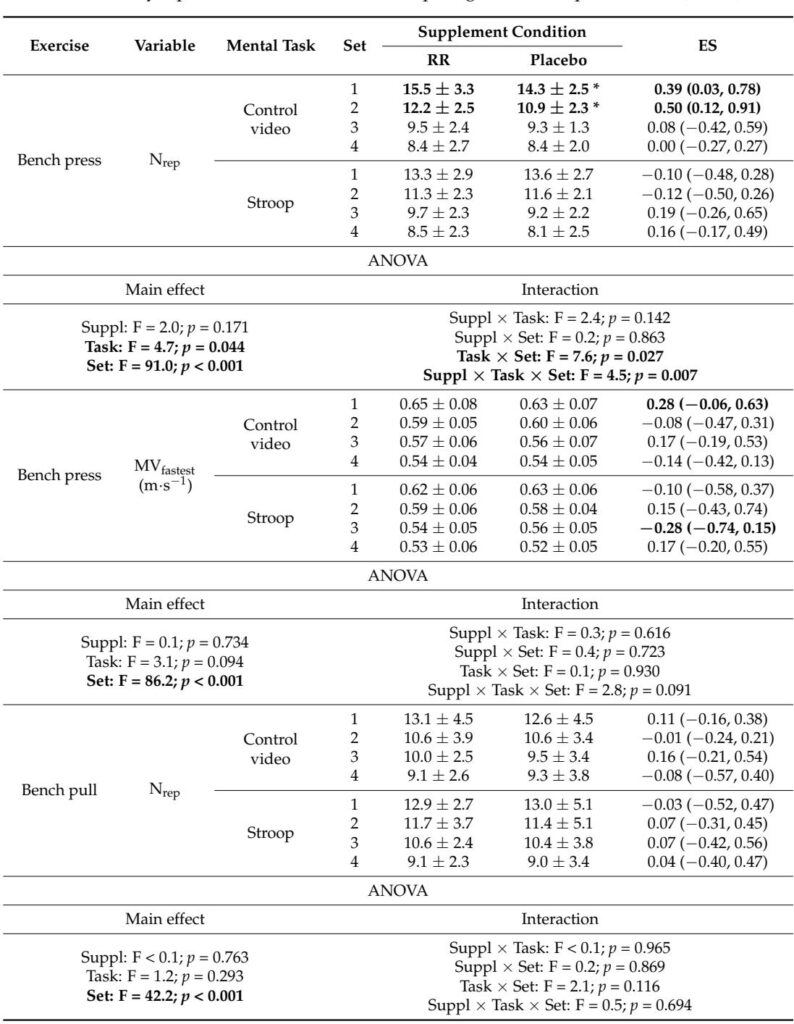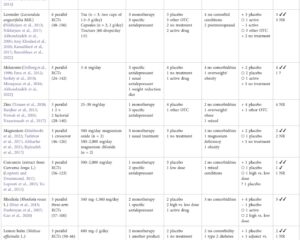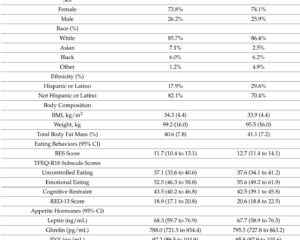Introduction
Mental fatigue, characterized by persistent tiredness and diminished cognitive functioning following prolonged cognitive effort, is recognized for its deleterious effects on both cognitive and physical performance. Particularly in athletic and occupational settings requiring sustained vigilance, mental fatigue compromises task execution and endurance capacity. Nutritional interventions, notably adaptogens such as Rhodiola Rosea (RR), have gained attention as potential modulators of fatigue and enhancers of physical and cognitive performance. RR, a herbal extract standardized for rosavins and salidrosides, is proposed to exert ergogenic and adaptogenic effects through modulation of the hypothalamic–pituitary–adrenal axis and catecholaminergic systems, which influence energy metabolism, neural excitability, and muscle contractility.
Study Design and Methodology
This investigation implemented a randomized, triple-blinded (participants, researchers, data analysts), placebo-controlled crossover design involving eighteen resistance-trained individuals (seven women) aged 18–40 years. Participants attended five laboratory sessions spaced one week apart: an initial familiarization and one-repetition maximum (1RM) assessment session followed by four experimental sessions. Each experimental session applied distinct combinations of supplementation (RR versus placebo) and mental task conditions (30-minute incongruent Stroop test to induce mental fatigue versus control video). RR dosage entailed 1,200 mg daily over four consecutive days before each session, with placebo matched in appearance and dosing schedule. Primary endpoints included cognitive performance measured via Stroop and Multiple Object Tracking (MOT) tests, and physical performance assessed through alternating bench press and bench pull exercises at 70% 1RM evaluating number of repetitions (Nrep) and fastest mean velocity (MVfastest). Ratings of perceived exertion (RPE) were collected post-exercise.
Key Findings
The Stroop task successfully induced mental fatigue, evidenced by declining accuracy and slowing reaction time, yet RR supplementation demonstrated no significant amelioration of cognitive performance or mental fatigue markers versus placebo. MOT test results correspondingly revealed no significant improvements attributable to RR.
In strength performance, a nuanced effect emerged: in control (non-fatigued) conditions, RR modestly enhanced initial set performance—specifically increasing bench press repetition count and bench pull fastest velocity compared to placebo. However, these benefits did not persist across all sets or under mental fatigue induced by the Stroop task, where RR showed no ergogenic advantage. Across 52 comparative measures, 17 showed small effect sizes with 14 favoring RR, though only four reached statistical significance, reflecting limited and context-dependent efficacy.
Perceived exertion (both general and local) was not significantly altered by RR supplementation in either mental condition.
Expert Commentary
The findings suggest RR’s ergogenic properties may manifest primarily under non-fatigued baseline states, classifying it potentially more as an adaptogen enhancing maximal physical performance than as an effective countermeasure against mental fatigue. The absence of cognitive improvement contrasts prior studies using varied cognitive tasks and supplementation durations, highlighting methodological heterogeneity as a barrier to definitive conclusions. Mechanistically, upregulated catecholamine release by RR could mediate enhanced muscle contractility and energy substrate availability, plausibly explaining improved early-set strength metrics. Yet, RR’s inability to relieve mental fatigue effects suggests insufficient neuromodulation under sustained cognitive stress or the need for longer supplementation duration.
Limitations include a modest sample size and inconsistent cognitive testing methodologies compared to prior literature, which together may limit statistical power and external validity.
Conclusions
This rigorously controlled trial elucidates that short-term RR supplementation exerts minimal impact on mental fatigue and cognitive processing but may confer small, acute ergogenic benefits on physical strength parameters under rested conditions. Given these domain-specific effects and the tolerability profile, RR can be considered safe and modestly beneficial for physical performance enhancement, particularly in resistance-trained populations. Future research is warranted to standardize cognitive fatigue paradigms, explore dose-duration relationships, and define mechanistic pathways underpinning RR’s adaptogenic and ergogenic effects, including investigation into long-term neuromuscular adaptations with continued supplementation.
References
Marcos-Frutos D, Leban Ž, Li Z, Zhang X, Lara PM, Alix-Fages C, Jiménez-Martínez P, Zebboudji N, Caillet A, Redondo B, Vera J, Janicijevic D, García-Ramos A. The Impact of Rhodiola Rosea Extract on Strength Performance in Alternative Bench-Press and Bench-Pull Exercises Under Resting and Mental Fatigue Conditions: A Randomized, Triple-Blinded, Placebo-Controlled, Crossover Trial. Nutrients. 2025 Mar 7;17(6):940. doi: 10.3390/nu17060940. PMID: 40289957; PMCID: PMC11944791.
Spasov AA, Wikman GK, Mandrikov VB, Mironova IA, Neumoin VV. A Double-Blind, Placebo-Controlled Pilot Study of the Stimulating and Adaptogenic Effect of Rhodiola rosea SHR-5 Extract on the Fatigue of Students Caused by Stress during an Examination Period with a Repeated Low-Dose Regimen. Phytomedicine. 2000;7(2):85–9.
Darbinyan V, Kteyan A, Panossian A, Gabrielian E, Wikman G, Wagner H. Rhodiola rosea in Stress Induced Fatigue—A Double Blind Cross-over Study of a Standardized Extract SHR-5 with a Repeated Low-Dose Regimen on the Mental Performance of Healthy Physicians during Night Duty. Phytomedicine. 2000;7(5):365–71.
Shevtsov VA, Zholus BI, Shervarly VI, Vol’skij VB, Korovin YP, Khristich MP, Roslyakova NA, Wikman G. A Randomized Trial of Two Different Doses of a SHR-5 Rhodiola rosea Extract versus Placebo and Control of Capacity for Mental Work. Phytomedicine. 2003;10(2–3):95–105.
De Bock K, Eijnde BO, Ramaekers M, Hespel P. Acute Rhodiola Rosea Intake Can Improve Endurance Exercise Performance. Int J Sports Nutr Exerc Metab. 2004;14(3):298–307.
Williams TD, Langley HN, Roberson CC, Rogers RR, Ballmann CG. Effects of Short-Term Golden Root Extract (Rhodiola rosea) Supplementation on Resistance Exercise Performance. Int J Environ Res Public Health. 2021;18(13):6953.
Marcora SM, Staiano W, Manning V. Mental Fatigue Impairs Physical Performance in Humans. J Appl Physiol. 2009;106(3):857–64.
Hopkins WG, Marshall SW, Batterham AM, Hanin J. Progressive Statistics for Studies in Sports Medicine and Exercise Science. Med Sci Sports Exerc. 2009;41(1):3–13.



